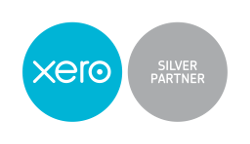Choosing the right business “vehicle” for your venture is a tough decision that needs to be made. On the one hand, if you’re a sole trader, you can reap the benefits of enjoying your own profits earned whilst at the same time being held personally responsible for any debts and liabilities your business may face. A limited company is different. Usually followed by the abbreviations Ltd., PLC, LLC, AG and others, it’s a whole different structure altogether. If you would like to find out more about what a limited company is and what amount of corporation tax it is liable for, keep reading below.
What is a limited company?
A limited company is a type of business structure in which the owner is legally separated from the business. Therefore, whatever assets and liabilities the owner incurs in the course of doing business, these remain in the ambit of the business. The owner cannot be held personally liable for any liabilities or debts incurred by the business and as such, it’s a safe way of conducting business while keeping the personal separate from the professional.
What is corporation tax?
Having covered what a limited company is, it’s also worth noting that this type of business is required to pay corporation tax in the UK. This is a legal requirement. Such tax is paid on the profits made by the company as well as on any gains from selling assets, which have increased in value. Therefore, it is taxed on both revenue and profit.
How much tax does a limited company pay?
We now come to the crucial question of how much can a limited company earn before paying tax. The short answer is 19% annually. However, this is dependent on several factors such as your annual profits. For example, a limited company with annual profits of £250,000 and over will be subject to corporation tax of between 19% and 25%. However, the rate of 19% will continue for companies with profits of up to £50,000. Marginal relief will be available up to £250,000.
How can you get tax relief?
You may think that paying the 19% to 25% corporation tax rate is fixed in stone. However, in principle, there are ways to get tax relief. One such way is to claim allowable expenses. These are costs that the company incurs for the sole purpose of running the business and not for personal expenses.
Although there are many of these allowable expenses, a few examples include the purchase of raw materials, employees’ salaries, stock purchased for resale, contributions to the Employers’ National Insurance Contributions (NICs), pension contributions by the employer as well as business insurance, training and accounting costs and many others.
What is excluded from these allowable expenses, however, are assets and equipment that you purchase and keep for your business. Known as capital assets, they are excluded from the list. On the other hand, you may also be able to qualify for tax reliefs for things such as R&D costs, business losses, disincorporation and others.
The bottom line
Managing your financial obligations is an essential part of running a business successfully. But if you are unsure of where to start and don’t yet have the funds to hire an in-house team of bookkeepers and accountants, you may consider our outsourced bookkeeping services in London. At Tax Navigator, you will always be able to rely on professional services that have you and your business top of mind. If you’re ready to take the next step, simply reach out to us and we’ll be more than happy to help.



0 Comments